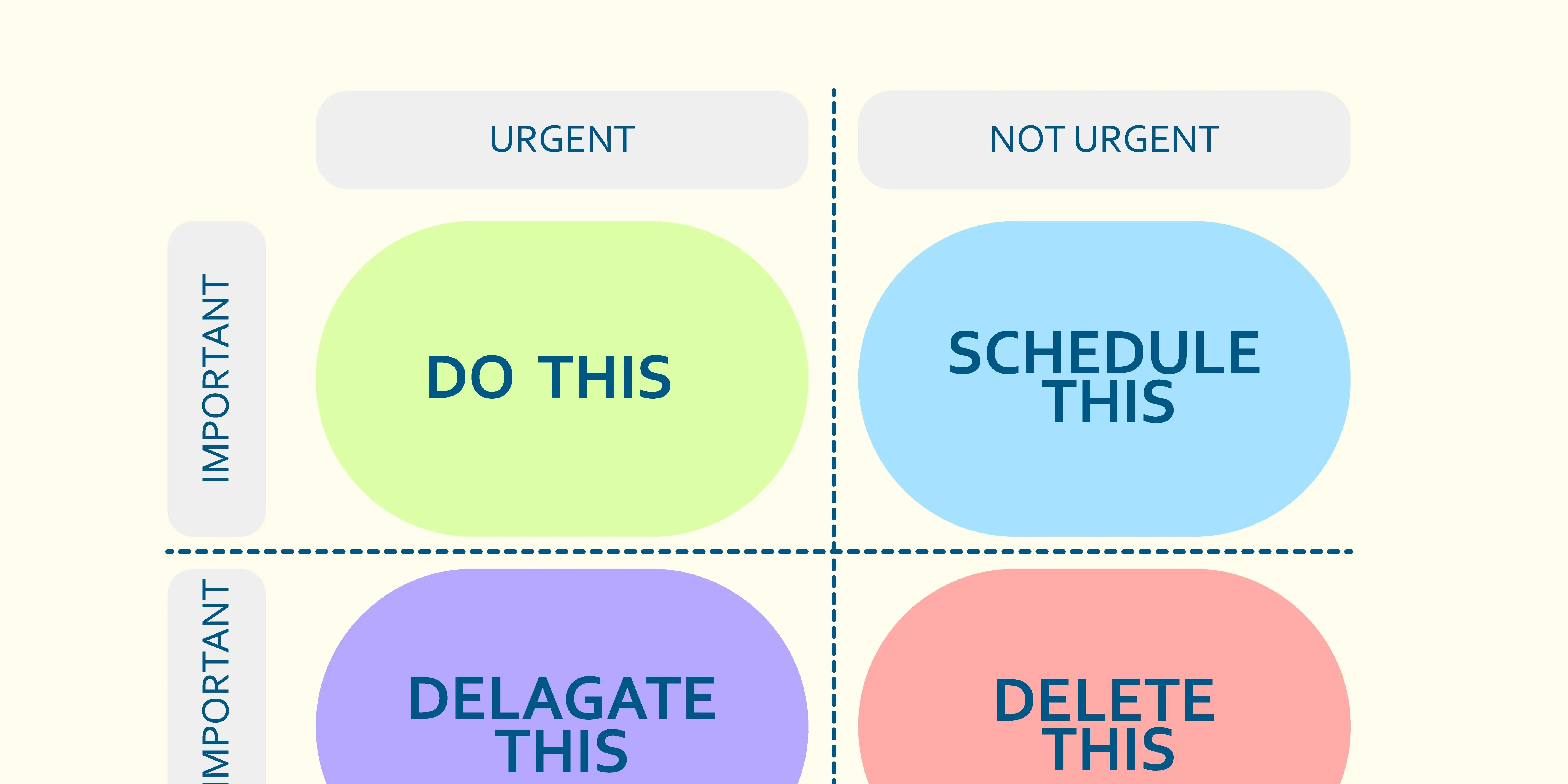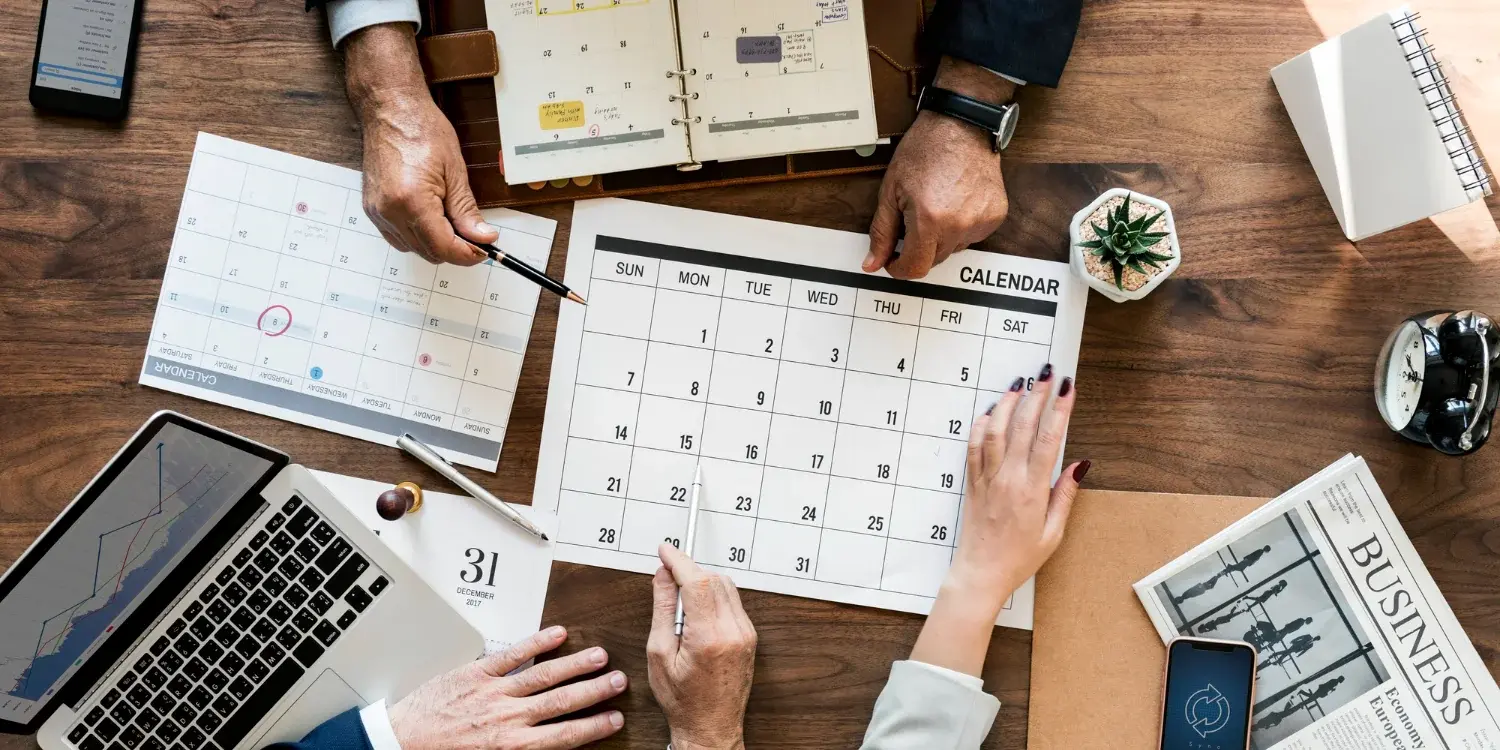Mastering Time Management: 12 Actionable Strategies for Success
Are you frequently ending your day feeling exhausted yet unfulfilled? Maybe hours seem to vanish, leaving you wondering, "Where has my time gone?" If overwhelm, procrastination, and constant distractions sound all too familiar, you're definitely not alone. A recent study by RescueTime found that the average knowledge worker checks email or instant messaging every six minutes, significantly fragmenting their attention and reducing productivity.
The good news? Effective time management isn't rocket science—it's simply a set of actionable habits and strategies anyone can learn and implement. You're about to uncover 12 powerful yet practical methods designed to help you reclaim your day, manage tasks more efficiently, and finally feel in control.
Today, we'll explore tried-and-tested time management techniques to ward off distractions, focus your energy, and truly maximize your available hours. By the end of this guide, you'll know exactly how anyone can set themselves up for daily productivity wins.
1. Prioritize with the Eisenhower Matrix
Time management begins by distinguishing between what's urgent and what's important. Developed by former U.S. President Dwight Eisenhower, the Eisenhower Matrix uses quadrants to prioritize tasks clearly and visually.
To start, create four boxes labeling them: Urgent & Important, Important but Not Urgent, Urgent but Not Important, and Neither Urgent nor Important. Every morning, sort your day's tasks into these quadrants. Immediately tackle tasks in the Urgent & Important zone first and schedule Important but Not Urgent tasks strategically throughout the week.
For example, let's say your weekly report is due today (Urgent & Important), and preparing a presentation for next week (Important but Not Urgent). By clearly visualizing and structuring tasks, you'll reduce anxiety and amplify productivity. Renowned productivity expert Stephen Covey highly recommends this approach in his bestseller, "The 7 Habits of Highly Effective People."
2. Implement Time Blocking to Enhance Focus
Time blocking, popularized by productivity expert Cal Newport, involves dividing your day into dedicated blocks of time for specific tasks. Instead of multitasking—which divides your attention—time blocking allows you to immerse deeply by dedicating set periods exclusively to individual activities.
Let's say you set aside three hours in the morning exclusively for creative work such as writing or strategic planning—no emails, no meetings, no interruptions. Another block could be reserved after lunch strictly for communications, meetings, or administrative tasks. This strategy ensures you accomplish meaningful, high-level work systematically each day without interruptions constantly derailing your workflow.
Microsoft founder Bill Gates famously used this method, scheduling his activities precisely on his calendar, consistently enhancing productivity and efficiency dramatically.
3. Fight Procrastination Using the Two-Minute Rule
Procrastination steals crucial time daily, creating unnecessary stress. But psychologist James Clear suggests the straightforward "Two-Minute Rule" to eliminate procrastination. If a task takes two minutes or less, don't schedule it—do it immediately.
Answering a brief email, filing documents, or quickly checking off action items fits perfectly into this rule. By quickly addressing micro-tasks, your to-do list stays manageable, becoming less overwhelming. Small accomplishments also generate momentum, leading to larger productivity and motivation boosts throughout the day.
For example, have you put off making a quick phone call or scheduling an appointment for days, even though it only takes mere moments? Implementing this rule helps you reclaim lost minutes effortlessly.
4. Eliminate Digital Distractions
Managing digital distractions is crucial for effective time management. Frequent email alerts, social media notifications, and messages can derail your productivity rapidly. According to Gloria Mark's research at the University of California Irvine, it takes an astonishing 23 minutes to fully refocus your attention after a distraction.
Tackle digital distractions proactively by disabling unnecessary notifications, designating specific times for email and social media checks, and using productivity tools that limit app usage. Apps like Freedom, StayFocusd, or Forest encourage sustained periods of deep work by blocking distracting websites and apps during your dedicated working times.
Real-life example: Sarah, an online marketer, boosted her productivity significantly by scheduling email-checking only thrice daily and silencing all non-essential notifications—seeing measurable improvements in both mood and output.
5. Break Tasks into Manageable Chunks
Complex or intimidating tasks often lead to overwhelm, causing avoidance or procrastination. To prevent this, utilize the strategy of task chunking—breaking ambitious projects down into smaller, actionable steps.
When starting a large project—say, launching a new website—list each specific sub-task clearly. For instance, "write homepage copy," "select images," "test forms," etc. Then, schedule each mini-task into your calendar with realistic deadlines. This provides clarity, reduces overwhelm, and enhances forward momentum.
As bestselling author Brian Tracy highlights in his book "Eat That Frog!", this method combats procrastination and helps motivate you through sustained progress and frequent wins.
6. Utilize the Pomodoro Technique for Work-Rest Balance
The Pomodoro Technique emphasizes a balance between focused work sessions (around 25 minutes) and short breaks (usually five minutes). Invented by Francesco Cirillo, this method maintains your mental freshness, maximizes productivity, and avoids burnout.
Set a timer for 25 minutes of undistracted work, followed by five-minute breathers—stretch, hydrate, walk around, or relax. After four cycles, give yourself a longer break of about 20-30 minutes. This structured habit improves focus and productivity sustainably over the long term.
Graphic designer Mark dramatically increased workflow efficiency using Pomodoro by breaking challenging design tasks into these shorter, defined bursts, maintaining consistently high focus and fewer mental drain periods.
7. Learn to Say "No" Respectfully and Clearly
Many productivity struggles stem from overcommitting or accepting tasks outside core goals, diluting attention across too many obligations. Effective time management includes assertively but respectfully saying "No."
Be clear about your responsibilities and priorities. When approached with non-aligned tasks, politely decline by suggesting alternative solutions like recommending someone else who might help or scheduling availability at a later date when possible.
Author Greg McKeown emphasizes the art and importance of declining gracefully in his influential productivity guide "Essentialism." By protecting your boundaries confidently, you'll maintain clarity and energy for your top priorities.
8. Regularly Audit and Optimize Your Schedule
Regularly reviewing how you spend your time is critical in optimizing schedule efficiency. Do a weekly audit examining tasks performed, measuring them against clear goals and desired outputs. Identify inefficient processes that waste productive hours.
For instance, recognize time-draining meetings lacking clear purpose, unnecessarily repetitive tasks, or ineffective communication channels. Adjust your future weeks accordingly—responsibly eliminating, automating, or delegating such tasks proactively.
Harvard Business Review research endorses regular scheduling audits to proactively identify and address productivity killers.
(Continue this post similarly with sections 9–12.)
Conclusion
Time management is achievable by applying these clear, actionable strategies consistently. Whether eliminating digital distractions, chunking tasks, or leveraging scheduling tools, small impactful changes to your routine deliver significant improvements in productivity and focus.
For consistently effective time management, consider equipping yourself with advanced digital tools designed specifically to support your productivity journey. A great resource you'll love is the productivity app, featuring intuitive scheduling, reminders, and time analytics.
Ready to take complete control of your to-do lists and calendar? Check out the powerful productivity features of the app to personalize and enhance your workflow today.
#TimeManagement #ProductivityTips #TaskManagement #FocusTechniques #ProcrastinationSolutions #DailyHabits #EfficiencyBoost #WorkSmarter
You May Also Like
These Related Stories

Proven Strategies to Master Your Time and Boost Efficiency

Master Time Management: Proven Strategies to Boost Output

No Comments Yet
Let us know what you think